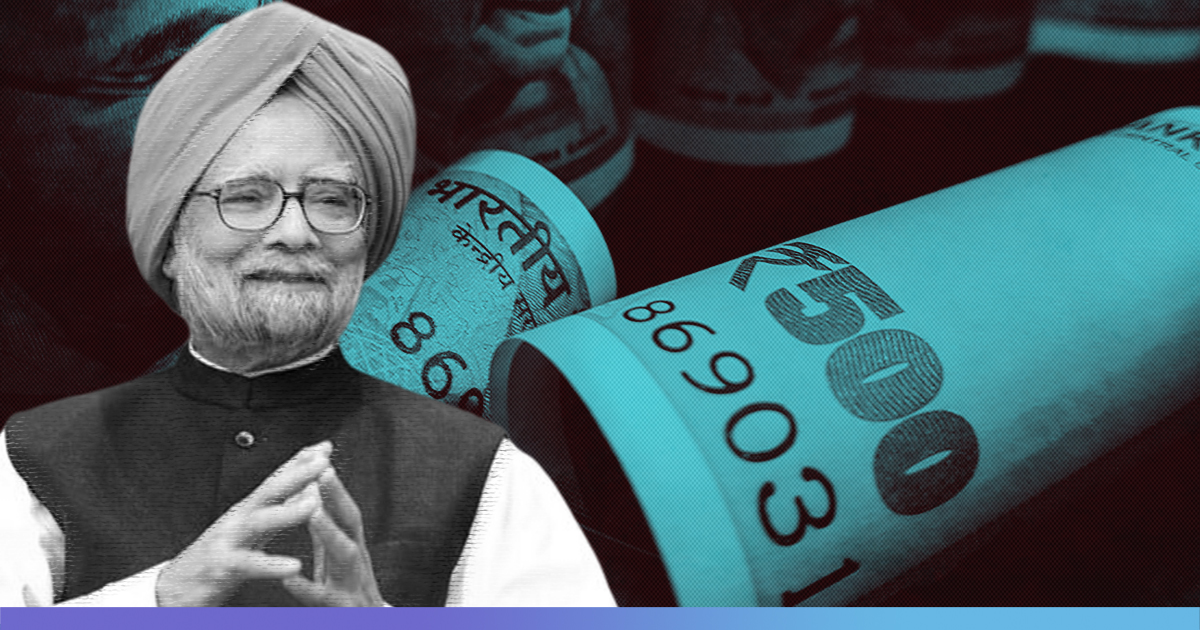Former Prime Minister, Dr Manmohan Singh, has called out the incumbent Narendra Modi government to shed its ‘mala fide unless proven otherwise’ doctrine of governance to revive the economy.
Manmohan Singh’s statement comes after the Reserve Bank of India lowered India’s GDP growth estimate for the year to 6.1 per cent from the earlier 6.9 per cent due to economic slowdown.
The State Bank of India also predicted India’s Gross Domestic Product (GDP) growth rate for FY20 to come down to 5 per cent from an earlier 6.1 per cent. The SBI’s predictions may lead to a record dip in growth rate to 4.2 per cent in the second quarter amid low automobile sales, flattening of core sector growth and declining investment in construction and infrastructure.
“A nation’s state of the economy is also a function and reflection of the state of its society. Mutual trust and self-confidence are the bedrock of such social transactions among people that foster economic growth. Our social fabric of trust and confidence is now torn and ruptured,” Singh wrote in The Hindu today as the Winter Session of the Parliament commences today.
Citing falling GDP growth to a 15-year low, unemployment at a 45-year high and household consumption dipping to a four-decade low, the former PM argued these are “mere manifestations of a deeper underlying malaise that plagues the nation’s economy today”.
Singh Lashes Out At Modi Govt
“The premise of the government’s policy framework seems to be that economic participants have mala-fide intent unless they can prove otherwise. This suspicion that every industrialist, banker, policymaker, regulator, entrepreneur and citizen is out to defraud the government has led to a complete breakdown of trust in our society,” Singh said.
Singh also said that many industrialists have told him that they live in fear of harassment by government authorities. Bankers are reluctant to make new loans for fear of retribution and entrepreneurs are hesitant to put up new projects, for fear of failure attributed to ulterior motives.
“Policymakers in government and other institutions are scared to speak the truth or engage in intellectually honest policy discussions. There is an atmosphere of profound fear and distrust among people who act as agents of economic growth. When there is such distrust, it adversely impacts economic transactions in society,” he added.
Singh further wrote that the Modi government seems to view everything through a tainted prism of suspicion and distrust, and has positioned itself as some saviour, “resorting to foolhardy moral-policing policies such as demonetisation, which have proved to be ill-thought-out and catastrophic”.
“Wrongful evil characterisation of everyone and a ‘good-vs-evil governance’ doctrine cannot be a recipe for healthy economic growth,” he wrote.
India, a $3-trillion global economic powerhouse driven by private enterprise, is not a tiny command and control economy that can be bullied and directed at will, he wrote. Nor could it be managed through “colourful headlines and noisy media commentary. Shooting down messengers of bad news or shutting off economic reports and data is juvenile and does not behove a rising global economic powerhouse.”
Singh said it is imperative that the torn social fabric of fear and distrust is stitched together for economic growth to revive.
Economy In Precarious State
“Incomes are not growing. Household consumption is slowing,” Singh wrote. “People are dipping into their savings to maintain similar levels of consumption. The headline GDP growth is accruing almost entirely to the creamy layer at the top.”
“The worrying trend is that the most recent retail inflation numbers have shown a sharp increase, especially the food inflation figure, and it is expected to rise even further in the coming months,” Singh said. “Continued increase in inflation combined with stagnant demand and high unemployment will lead to what economists term as ‘stagflation’, a dangerous territory from which it becomes very hard for large economies to recover,” the former PM added.
He said that while India is currently not in stagflation territory yet, it is prudent to act quickly to restore consumption demand through fiscal policy measures since the impact of monetary policy seems muted.
Calling it a “self-inflicted economic wound”, Singh concluded by blaming Prime Minister Narendra Modi for creating a climate of “confidence and economic dynamism away from the current climate of fear, distrust and pessimism”.
Also Read: Nirmala Sitharaman Blames UPA Govt, Rajan For ‘Worst’ Banking Crisis, Manmohan Singh Hits Back












